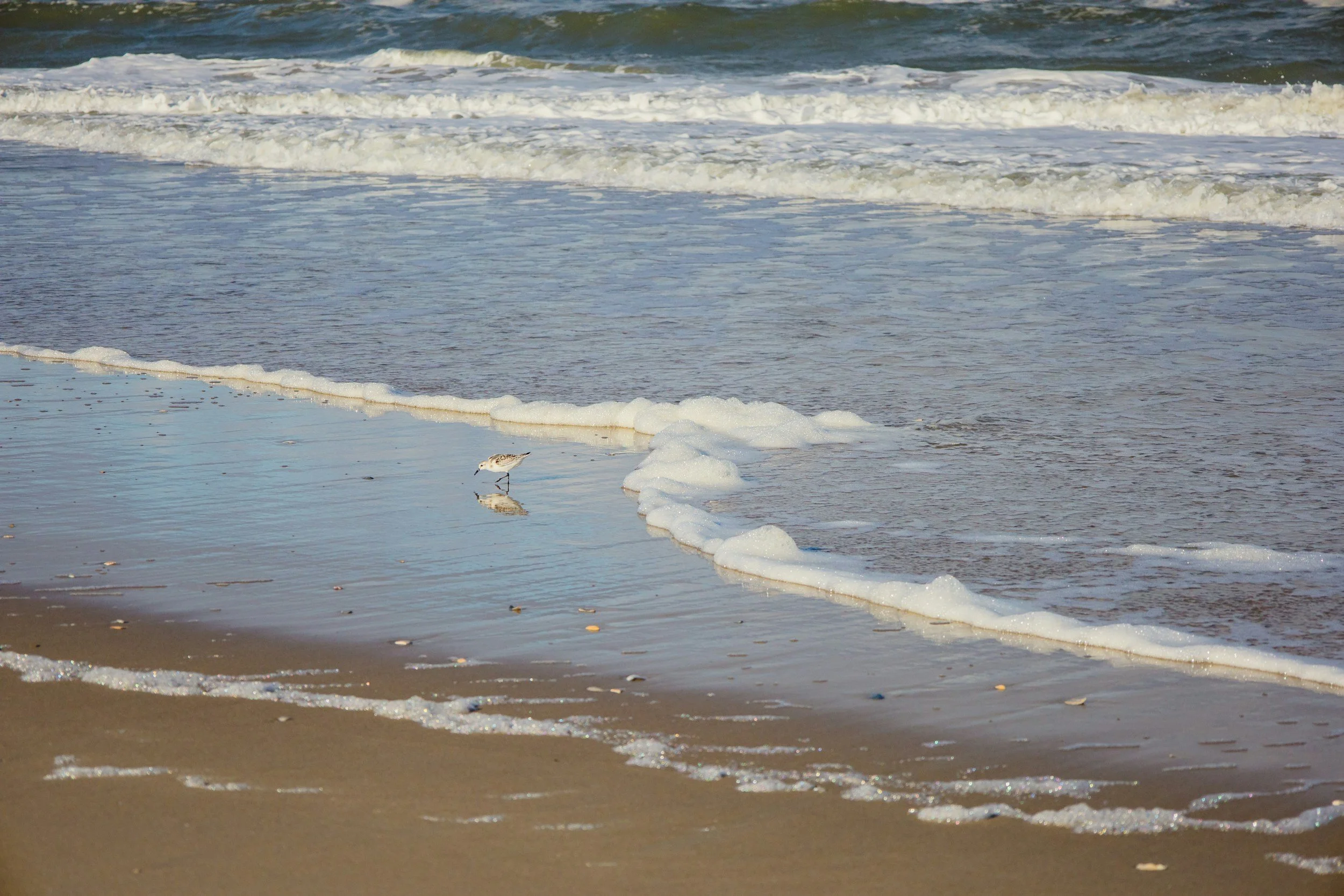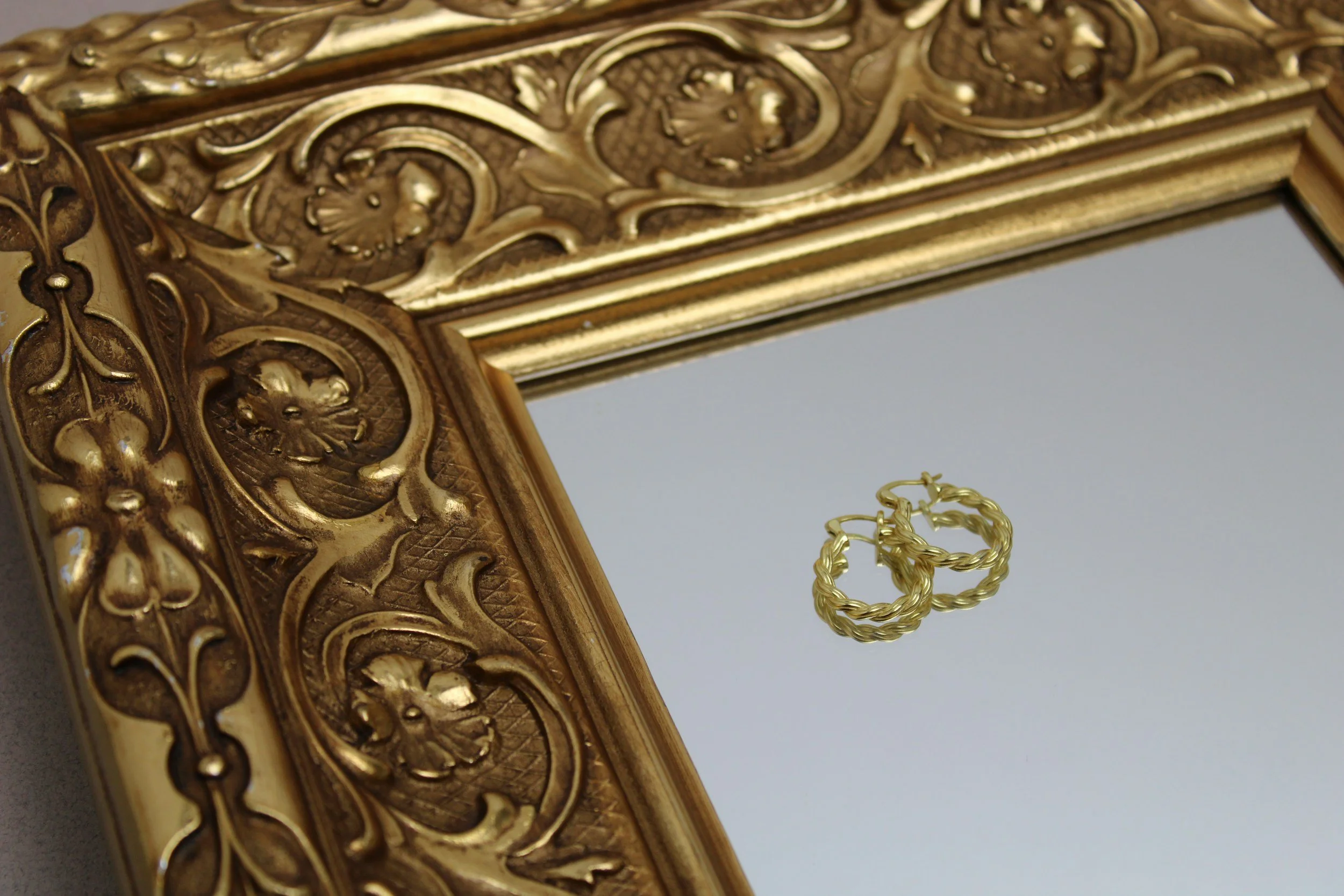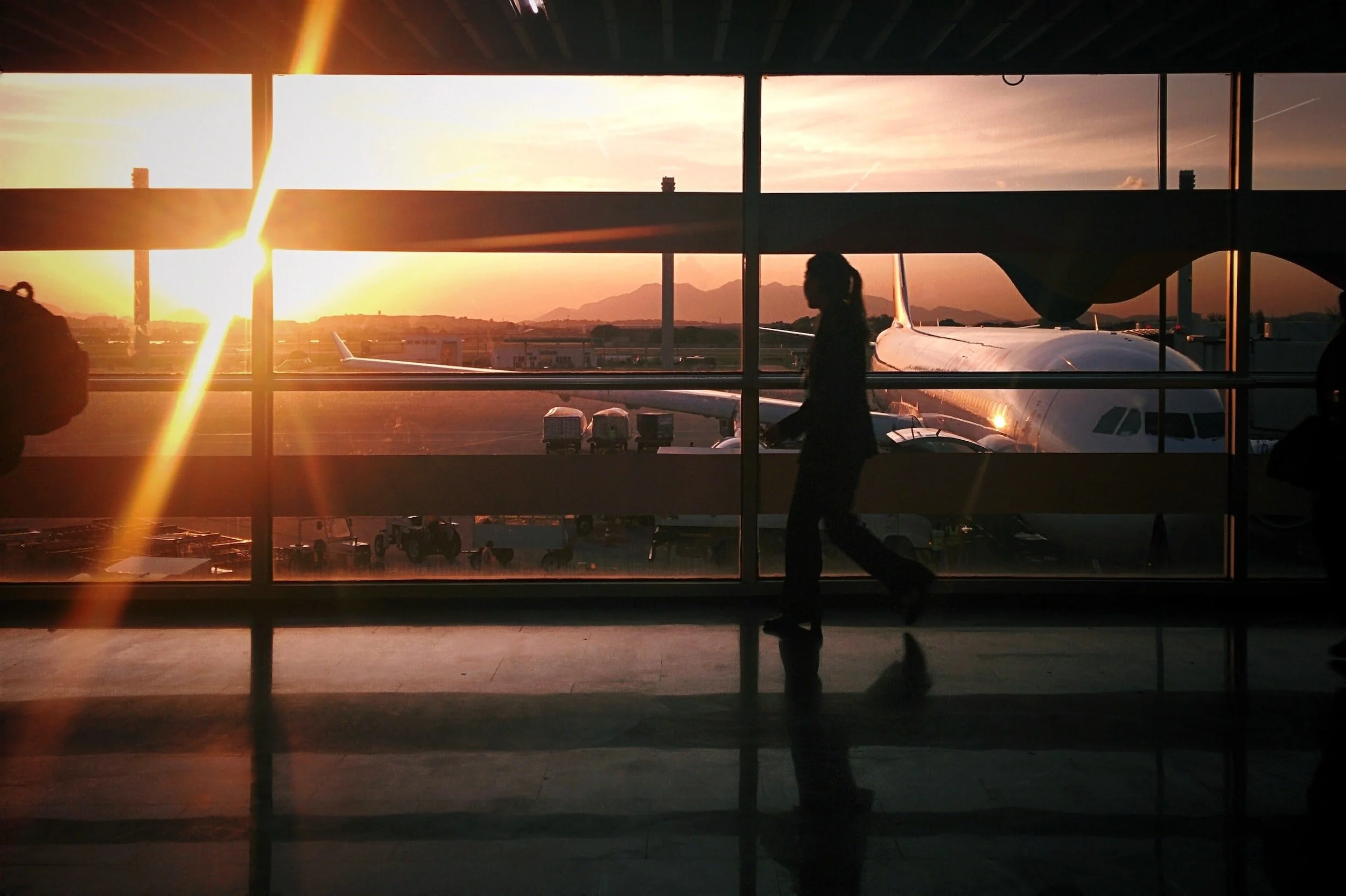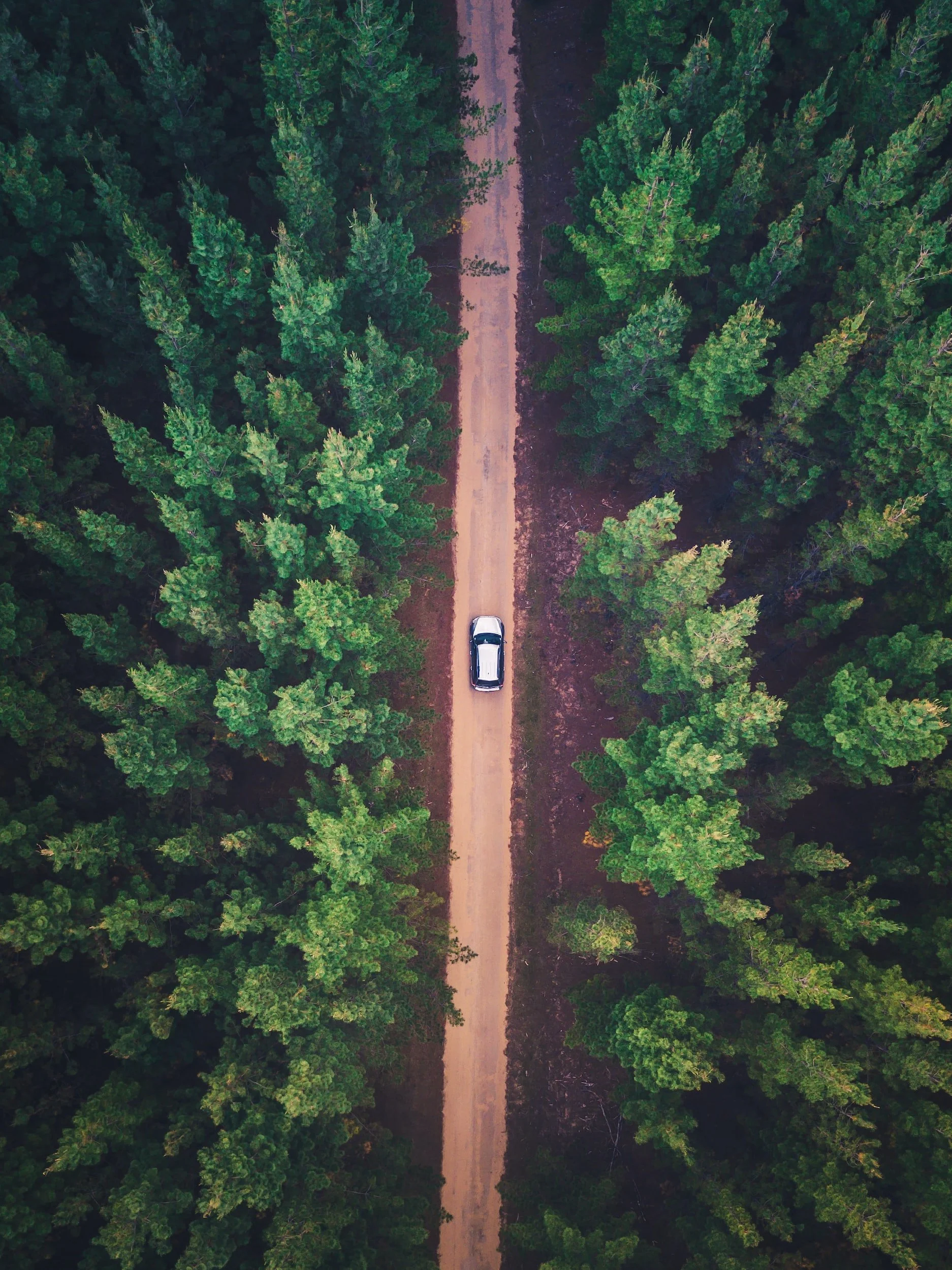The Old Man and the Sea
It was a quaint little place, one room in the front of a house, lined with old shelves in chipping paint, books squeezed in wherever there was space. In the corner stood a tiny wooden table with a few flowers in a small vase, sitting atop a stack of novels and old Turkish newspapers.
“Merhaba?” I called tentatively, sure I wouldn’t be heard over the astronomically loud volume of the opera—Don Giovanni, it sounded like—coming from the adjacent room. I peeked in, and saw an older man—sixty years old, perhaps—lying across a low bench, eyes closed and hands resting on his stomach as though he’d been posed for a funeral viewing. I took a careful step in, and the floorboard creaked. His eyes shot open and he turned his gaze immediately upon me, jumping off the bench once he saw me standing in the shop.
“Yes, yes, merhaba,” he yelled over the music. He went to the boom box—the sight of which took me back to childhood summer evenings of Savage Garden and ABBA with mum—and turned it down to an almost conversation-friendly level. I stepped back into the main room and he came in to join me. He studied me for a moment. “Pakistani,” he declared, rather than asked. My eyes widened in surprised.
“Yes,” I said in English. He gave me a half-grin.
“Ah, but you live in America,” he yelled again, his voice a thunderously low boom that made him sound consistently displeased, the end of each sentence inflected upward, making everything he said come out as a sarcastic quip. It was unsettling. I winced, but nodded. “So, you like to read? What do you read?” he walked toward one of the bookshelves.
“Everything, really. Right now Heart of a Dog—”
“Ah, Bulgakov.” He said “ah” before every sentence, as though each one was a revelation. “Master and Margarita. Good writer. But Heart of a Dog is very short,” he shouted accusingly, as if my reading something of its length was indicative of some intellectual deficiency. I winced again.
“I’m also reading The Circle,” I added hastily, trying to save face. He looked perplexed by the title. “Eggers,” I explained. “His fiction that came out last year.”
“Ah, Heartbreaking Work of Staggering Genius. Another good writer.” He had his back turned away from me, studying the shelves. I decided against telling him that I found the book to be a bit shit.
“What do you read?” I tried for friendliness.
“Everything that comes into the shop.” He didn’t turn around to face me as he responded.
I looked around, eyes tracing the spines pressed tightly together on the shelves, mentally counting. There must have been close to two thousand. I thought about commenting, but didn’t quite know what I should say. The opera was still on, a cat curled up sleeping under the tiny table.
“You read this? Australian author. Very good,” he yelled as he spun around and thrust a book in my face. I took hold of it, speechless, and glanced down at the cat. It was still sleeping. I turned the book over to skim the back cover. Before I could say anything in response, he said,
“Here also. Chinese-American. She was unhappy her entire life. Died last year. Suicide, I think.” Clipped, monotone, matter-of-fact. He stacked the new book on top of the one I was holding. Before I had time enough to read the title, there was a newer one in my hands. “Polish. About the War.”
“Where do all of these come from?” I asked, realizing it would be futile to try and actually discuss the novels. Somehow I found myself with a fourth book, and I balanced the stack precariously, using my chin to hold them together.
“Travelers. Backpackers. Visitors,” he said, each word as though it were its own sentence. “But not many come through now. Antalya is different. Not an intellectual city anymore.” He’d have sounded morose and contemplative, had it not been for the shouting. As it were, he sounded massively irritated by the notion, as though personally offended, as if everyone in Antalya had collectively decided to stop coming into the shop to piss him off specifically. I found myself unwittingly taken by him.
I took a moment to put the books down upon the rickety table and flip through them. He walked to the front door. “See here,” he gestured for me to accompany him. “Wedding photo,” he pointed down the street. There was a thin woman, so pale as to be almost translucent, with massive hair and an even more massive gown, standing with her bony hand on her hip, waiting for her groom to come to her side. “People come here now, dressed in these things, just to take photos by Ottoman ruins. To be profound,” he spat the last word as though it left a sour taste upon his tongue. An equally thin man in a comically tight, blue blazer jogged into view, putting his arm around the woman’s narrow waist as three or four separate photographers started clicking away from all angles. It was a queer sight, almost disquieting in its perversity, the two of them, dressed in the finery of money and indifference against the decadence of ruin. “Bullshit.” He turned to me and gave me a stern look. “Do not marry foreign man. He will try to move you with words”— he gestured to his mouth—“but in here”—tapping at his temple—“there is nothing. Not good enough for someone like you.” He looked at me imploringly before turning on his heel and walking back into the shop. “So, why you are here?” He was back to looking at the books.
“Uhm,” I stammered, still reeling from the outburst of aggression. “I, uh, I teach English at the university.”
“Ah, good, yes, very good. This one, African author, French.” He tossed the book at me suddenly. I scrambled to catch it, almost missing. “So how long you are here in Antalya?”
“One year,” I flipped to the middle of the book and began skimming.
Tsk. I heard him click. I looked up. He was looking back at me, sorely disappointed. “That is too long in Turkey.”
I cocked my head in surprise. “I love it here,” I said truthfully, hoping he’d hear the earnestness in my voice. He did. If anything, he looked even more disappointed. “And anyway, I won’t be spending the whole year in Antalya. I want to travel. Especially along the sea.”
“The sea, the sea,” he laughed bitterly. “There is nothing left in Turkey anymore. You want to see, what, Myra? Efes? Ruins? Only forgotten histories masked by shit new buildings and shit new people.”
I took in the sight of him, scraggly beard dulled with gray, skin sallow and creased and much too old. There was a tiredness about him, amidst the cynicism, a heaviness draped about his shoulders like a cloak.
“That is a rather bleak worldview for someone who spends his days meeting travelers,” I commented dryly, averting my gaze, putting the book back on its shelf. I’d collected three, all three of which were among his earlier recommendations. “And anyway, I’ve met some wonderful people so far, much like yourself.” I handed him the books. “I’ll take these, please. And maybe next time, some çay.”
The bookseller looked startled for a moment, before chuckling. He charged me an astonishing price for the books, and I didn’t realize until I’d left that I never once thought to haggle with him.
A week later, during a free afternoon, I made my way back to Kaleiçi and to the bookstore. I struggled briefly in the maze of alleyways, but eventually came upon its rickety door of chipped, green paint. The boom box was blaring loudly again (Brahms, now), though I couldn’t immediately find the bookseller when I stepped inside.
“Merhaba!” I heard him yell from a distance. I peered about before seeing him through an open door to the backyard, sitting at a wooden table with bread in hand. Slender legs were peeking out from under the table as well, though the woman was hidden from view behind the wall.
“I can come back later,” I called out, not wanting to interrupt his lunch, but he was already getting out of his chair. He shook his head with the same look of irritated offense I remembered from before, gesturing for me to take his place. I grinned and made my way in, feeling a swell of pride as though I were being invited to share in something secret. He pulled the chair out for me.
“This is Grace,” he gestured to the woman at the table before heading toward the kitchen. “You want tea?” He didn’t wait for my response before I heard the telltale clinking of glass cups and plates.
“Memnun oldum,” Grace said to me in accented Turkish, with a voice that sounded like waves hitting the shore, husky and airy all at once. Her skin was a sun-kissed tan and freckled from spending so much time outdoors, hair dirty blonde and windswept after a morning of swimming in the sea.
“Ben de,” I responded cheerfully. She smiled. The bookseller set my tea on the table—honey-gold in color with a cube of sugar—before slipping into the shop.
“So you speak some Turkish?” Fluent English.
“A bit. Hoping to learn more.”
“Oh, an American! I lived in California for a long time. West Canada before that, born there. Now, the UK.” She was struggling to roll a cigarette as she talked, then seemed to realize what she was doing. “Oh, God, I’m sorry, it’s so rude of me to smoke. It’s a disgusting habit, I know.” I waved her apology aside. She stuck the cigarette between her teeth and pulled out a lighter. “I only ever do it here, and then every time I tell myself ‘It’s the last one.’” I laughed, and she pushed a bowl of olives toward me. “Eat, eat.”
“I feel bad, a little bit,” I said, glancing back into the shop for a sign of the bookseller. “I feel as though I’ve taken him away from lunch and a pleasant conversation.”
“Him?” she shook her head, amused. “Mehmet couldn’t care less about anything, I swear.” Mehmet, I noted, filing the name away.
“You’ve known him a while, then?”
She exhaled her drag. “Met him a few years ago. I come by whenever I’m in Turkey, God knows why.” She tapped the ashes into a small tray. “Seriously, eat. I’m going to help myself to a bit of wine, if you don’t mind. What time is it anyway?” She reached down and pulled a half-empty bottle from next to her chair as I checked my watch. It read 1:15. I told her as much. “Oh, damn, is that weird?” She was already pouring half a glass.
“It’s five o’clock somewhere,” I shrugged.
“I just love that you said that,” she grinned. She gestured the bottle at me, a silent question.
“I’m all right,” I turned down the offer. “I’ll stick with tea and olives for now.” Mehmet returned just then, and made a noise of disapproval at the wine.
“Already? How do you expect to have conversation if tipsy?”
“Tipsy makes for the best conversation,” Grace countered. Mehmet shook his head in disappointment—his dominant emotion, I was beginning to realize—and disappeared into the kitchen behind us. I took a moment to glance at my surroundings. There were a stack of papers scribbled with handwritten notes, clippings of newspaper articles, a bunch of bright green spring onions. “All I’ve been doing today is work for him, anyway,” she muttered, more to herself than to me. “Cleaning up after his messes…I even plucked a damn chicken! God, and to think I was in London five days ago.”
“Plucking a chicken certainly is one way to get London out of your system,” I said gravely. Grace laughed warmly, a tinkle of bells.
“So what’s your story, anyway? I’ve already talked way too much.”
Before I could say anything, Mehmet wordlessly placed a plate on top of the newspaper in front of me: a torn chunk of fresh-baked bread; a block of pungent, crumbly cheese; half an avocado. I watched his retreating form as he walked back into the shop before tearing off a bit of the bread and cheese. It was sharp and creamy and almost too musky. I gave her the introductory spiel as she sipped at the wine and rolled another cigarette.
“You know, I’m going to draw you a map of all the places you need to visit. You like the sea?”
“My dream as a kid was to grow up and be a mermaid.”
Grace looked at me as though she’d found her soul mate. Then she began scribbling away. “Here we are, in Antalya.” She circled a portion of her map before gesturing toward another. “Nearby is Kemer, but further down the coast is a city called ‘Demre.’” She wrote it out in uppercase letters. “You may know it as ‘Myra.’ God, the ruins. And you must go to the harbor. It’s…” she trailed off. I glanced up. Her eyes were faraway, in another time and place. After a moment she shook her head and let out a huff of laughter, sad. “He wouldn’t understand, of course,” she nodded in the direction of the shop. “He can’t stand this country, thinks it’s all gone to hell. He wishes he were Greek.” I looked back into the shop as well, watched him pacing the front room alone with his music, stop in front of the door to watch passersby idly stroll by, not once glancing inside at the treasure of books. I felt an inexplicable swell of bitterness.
“Sorry, sorry,” Grace’s voice shook me out of my thoughts, “I don’t mean to be so depressing. Sometimes I have to remind myself to look up. I mean, the sky here, it’s so emotive, don’t you think? And the flowers. I know that one’s jasmine”—she pointed at a jasmine tree whose branches were hanging over the brick wall behind us—“but the one above it, the blue ones that look like tiny trumpets, I can never remember the name.”
I watched them, swaying gently in the late summer breeze as if in a waltz. “I couldn’t tell you,” I admitted. “I’d forgotten about jasmine, too, actually, until I came here. I didn’t realize Antalya would be so full of them. The last memory I have of jasmine is my childhood at my grandmother’s house in Karachi, hiding under the jasmine tree, making flower necklaces and reading. Those were the times that I felt most like myself.” I didn’t realize the words I was saying until after I’d spoken them, and briefly felt embarrassed by my outburst.
“I think…those are the most important things to hold on to,” Grace said after a moment, reassuring, before standing up. “I’ll be back in a minute.” She slipped into the house. Left to myself, I peered around the yard. The table was atop a tiny little patio, nestled between the back room of the shop and the kitchen. In the far back, cobblestone steps disappeared behind the snow-white stone wall of the house, toward bursts of greens and oranges from the garden. The sky was turning the sort of color that made me think of Virginia Woolf, a diffused, golden glow that was gentle and sad all at once. I lightly fingered the fragile edges of the newspaper and considered getting up and helping myself to further exploration when Mehmet reappeared by my side and took my plate.
“The bread is good, yes?” he asked as he walked the empty dish into the kitchen. “Maybe more for you. Or onion.”
I was about to protest when he came back holding another portion of fresh bread, wrapped around sprigs of green onion and a handful of spicy herbs. I accepted it greedily. It smelled of clay and earth and tasted like late spring, bread warm and yeasty and onion sharp and biting. It may have been the most delicious thing I’d eaten in Turkey thus far. Mehmet smiled slightly, in what appeared to be fond amusement, and I considered him, the cynical old man who had, for the past twenty-five years, resigned himself to a failing bookshop, utterly oblivious to the singular beauty of where he had the fortune of being. I said nothing, and he went back inside to tend to two customers who had just entered. Grace returned then.
“The onion, it’s delicious, right? He grew them in the yard over there,” she informed me, pointing. I chewed thoughtfully, and realized that Grace was watching me. “You know,” she began, “have you been upstairs?”
“Where, here? In the shop?” I raised an eyebrow as I polished off the remainder of the sandwich.
“Yeah, well, it’s an old Ottoman home, right? Mehmet lives upstairs. I’m renting out his spare bedroom. Go check it out, I won’t tell him,” she whispered conspiratorially. I felt a thrill of excitement at the thought of wandering about upstairs on my own, seeing decades of history suspended in time. I crept into the house silently—Mehmet was still busy with the customers—and carefully up the stairs.
The light seemed to grow brighter as I climbed upwards, and I realized quickly that it was from the windows—massive, open windows—reflecting sunlight off of the stone walls. They felt gritty to the touch, as though made of sand, and were white as parchment, venerable, like large, empty canvases, covered in paintings that were invisible to me. Wood latticework adorned the cupboards that sat high upon the walls, delicate and ornate, upon which rested stacks of books in English, German, French. There was a full sort of silence upstairs, permeating every nook and cranny, between the creaking floorboards; not the sort of empty silence that fills the neglected, the abandoned. This was the sort of silence that kept one company in the solitude of slow nights, like an old friend. I walked to one of the windows and looked down upon a small, sprawling garden, trees obscuring my view of anything beyond the home and its flowers. I stood there for a minute, unmoving, just listening to the full silence and the hardness of the stones.
“So, what did you think?” Grace asked, excited and flushed from her second glass of wine, when I finally came back down.
“It felt like,” I struggled with the words for a moment. “Like you could feel the lives of everyone who’d lived in it before. It felt like comfort.”
Grace watched me, eyes seeming to see through me, full of an emotion I couldn’t quite identify. It looked almost like heartache. “I knew I could share that with you. I knew you would understand. And God, you’re so young, but you understand…” she trailed off, took a sip of her wine. “You know, I used to paint,” she laughed, as though the very notion were incredulous. “But I left all of my oils in England. It’s too bad, your eyes are just…” she trailed off again. I was overcome with the feeling that Grace forgot I was sitting with her, as though I were some porcelain figure keeping watch as she talked to herself, or a pretend audience she used to practice lines in front of, of the things she pondered about when she was alone. “My great-grandfather,” she cleared her throat, alert again, “he was a pasha. Old Istanbul, before Atatürk, before all of this. He lost it all, after. You can see him, you know,” she said, smiling at my wide eyes, “in the military history museum in Istanbul. It’s true. But my father, he… He moved to London when he was eighteen, and never looked back. Like he was trying to leave all of Turkey behind him. Then he met my mother and felt like he could start his life over again, his new, Western life. But me,” she sighed, a very sad sigh. “I feel more Turkish in my heart than anything. But I’m just…the baby. An afterthought, of no relevance.”
Maybe it was the wine, maybe she saw something in me, something I’ll never know, that made her feel like she could say anything without judgment. A tear ran down her cheek. “He doesn’t get it,” she laughed bitterly as more tears fell. “All he wants to do is leave, but he doesn’t understand. All he cares about are books, about escaping. Customers are just countries, to him. Americans, Bulgarians, Australians. Fuck that. You’re a person.” She looked at me fiercely, as if trying to convince me of a truth I didn’t understand. “You have a history, you have a mark, you have a story. That’s what living should be. And he won’t let himself do it, and he takes that out on Turkey. The bitterness, and the loneliness. He trades books for experiences, as though there are better realities in them than the one he’s living.” She wiped at her eyes, embarrassed, and I put my hand on her shoulder. She traded me a smile before standing up and pulling me into a tight hug. I heard her exhale heavily, comforted, and I knew then that it was time for me to leave.
I realized as I was walking away that Grace had never caught my name. To her, I must just be a passing memory, an anonymous woman who interrupted her life for an afternoon. A stranger to whom she’d opened her heart for a moment. I’d never understand the full story, I knew, the story of Grace and the bookseller, of the Ottoman home so full of history and memory and love and loss.
I realized, also, as I was walking away, that I hadn’t purchased a single book.
-Sabeen Ahmed

























